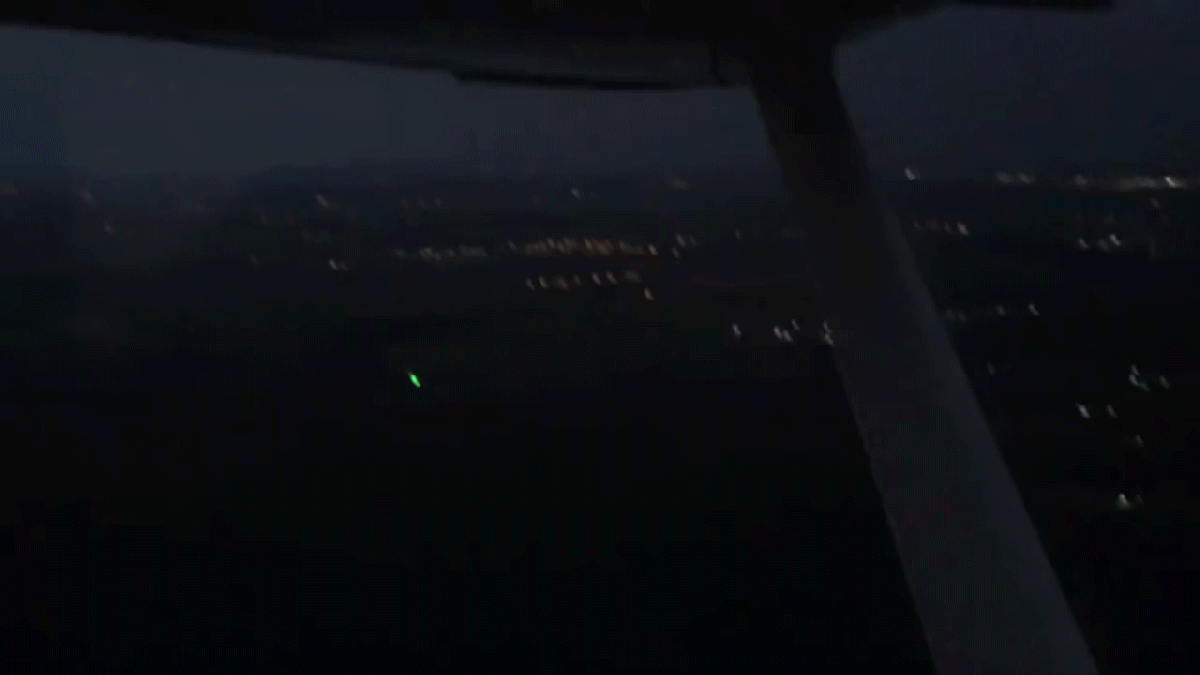More idiots armed with cheap laser pointers are causing dangerous distractions for pilots than ever before. Some 13,000 laser strikes were reported to the Federal Aviation Administration by pilots in 2023, up from 9,457 reports in 2022, and marking a new record high. Laser attacks on aircraft have more than tripled since 2011, in spite of the act being a federal crime since 2012. Since reporting began, hundreds of pilots have reported laser strike-related injuries, including flash blindness, afterimages, and eye pain. This can cause serious safety issues for the pilot at takeoffs and landings, where visuals are significantly more important. A person who aims a laser pointer at an airplane can expect a fine of up to $11,000 per incident, and occasionally prison time.
It’s hard to say why these laser strike numbers keep increasing, but experts say it is likely a combination of increasing laser attacks and increasing likelihood of pilots reporting attacks. Experts say these attacks are often perpetrated by bored kids and people who don’t like the noise, though some are deliberately aiming at planes and helicopters “with much more evil intent,” NBC News reports.
Pilots are increasingly encouraged to report laser strikes, and while planes have a hard time pinpointing exactly where the laser came from, many emergency medical and police helicopters are equipped with mechanisms to pinpoint the source of a laser strike and work with ground units to apprehend suspects. As of last year, the FAA does not have any reports of aircraft crashes due to laser strikes.
Commercially available laser pointers are legally only allowed to be 5 milliwatts, though stronger lasers can be obtained. Even at the permissible strength, a laser pointer can cause eye damage at 50 feet, and can still cause distraction at nearly 12,000 feet away. Green colored lasers cause more damage and glare than red and blue lights. As a caution, keep laser pointers away from unsupervised children, and avoid pointing them skyward for any reason.
California, Texas, and Florida saw the most strikes, but when adjusted for population and density, Hawaii and New Mexico saw the most strikes per capita.

